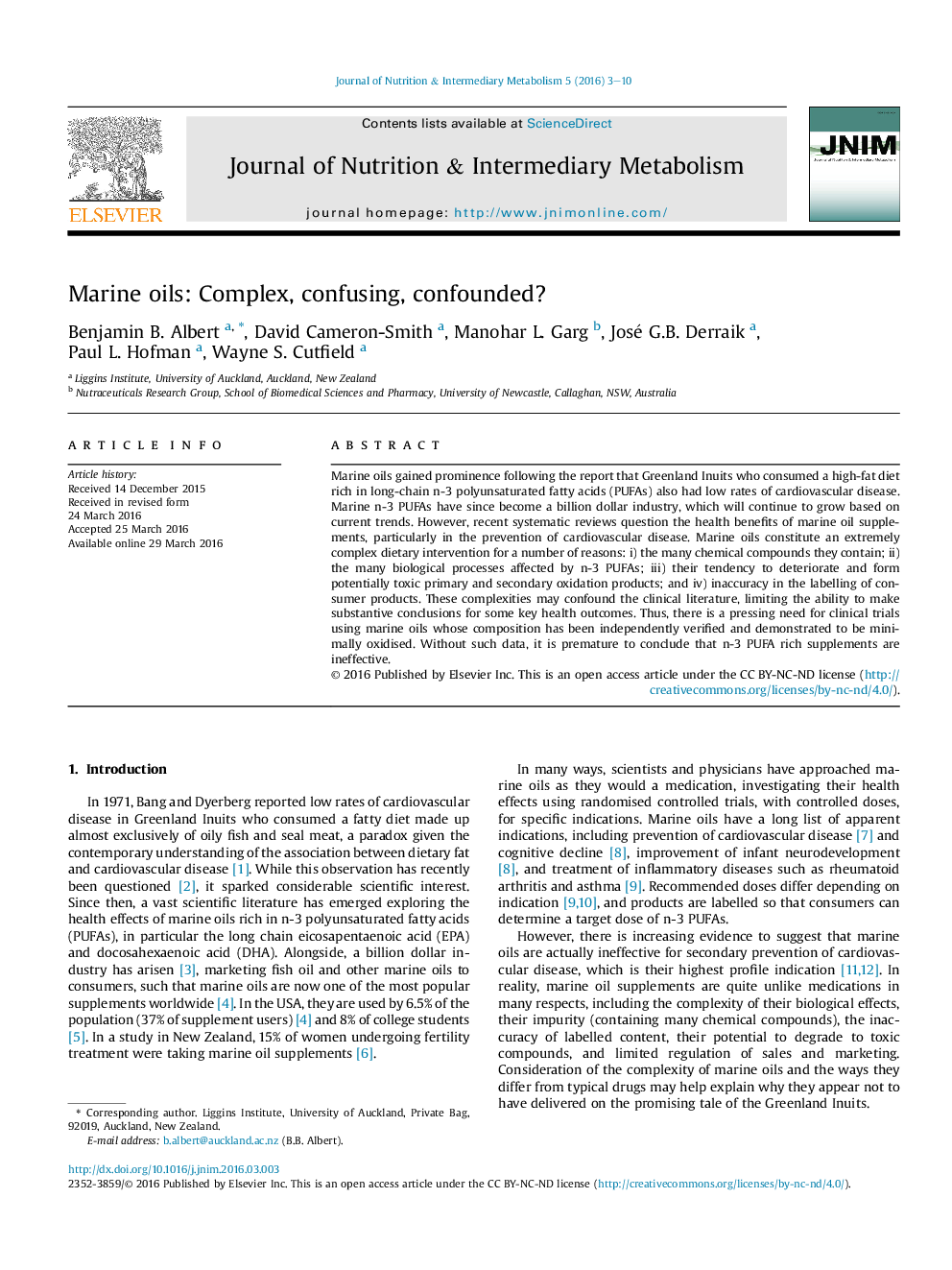| Article ID | Journal | Published Year | Pages | File Type |
|---|---|---|---|---|
| 2688629 | Journal of Nutrition & Intermediary Metabolism | 2016 | 8 Pages |
•N-3 PUFAs, found in marine oils affect many different biological pathways, and there is a potential for these to conflict.•N-3 PUFAs degrade to lipid peroxides and other oxidation products which may have adverse health effects.•Marine oils contain many other lipid soluble chemical species which may have important biological effects.•Many clinical trials may have been confounded by unrecognised differences in oil composition.•Clinical trials should report an independent analysis of the oxidative state and fatty acid composition of their trial oil.
Marine oils gained prominence following the report that Greenland Inuits who consumed a high-fat diet rich in long-chain n-3 polyunsaturated fatty acids (PUFAs) also had low rates of cardiovascular disease. Marine n-3 PUFAs have since become a billion dollar industry, which will continue to grow based on current trends. However, recent systematic reviews question the health benefits of marine oil supplements, particularly in the prevention of cardiovascular disease. Marine oils constitute an extremely complex dietary intervention for a number of reasons: i) the many chemical compounds they contain; ii) the many biological processes affected by n-3 PUFAs; iii) their tendency to deteriorate and form potentially toxic primary and secondary oxidation products; and iv) inaccuracy in the labelling of consumer products. These complexities may confound the clinical literature, limiting the ability to make substantive conclusions for some key health outcomes. Thus, there is a pressing need for clinical trials using marine oils whose composition has been independently verified and demonstrated to be minimally oxidised. Without such data, it is premature to conclude that n-3 PUFA rich supplements are ineffective.
